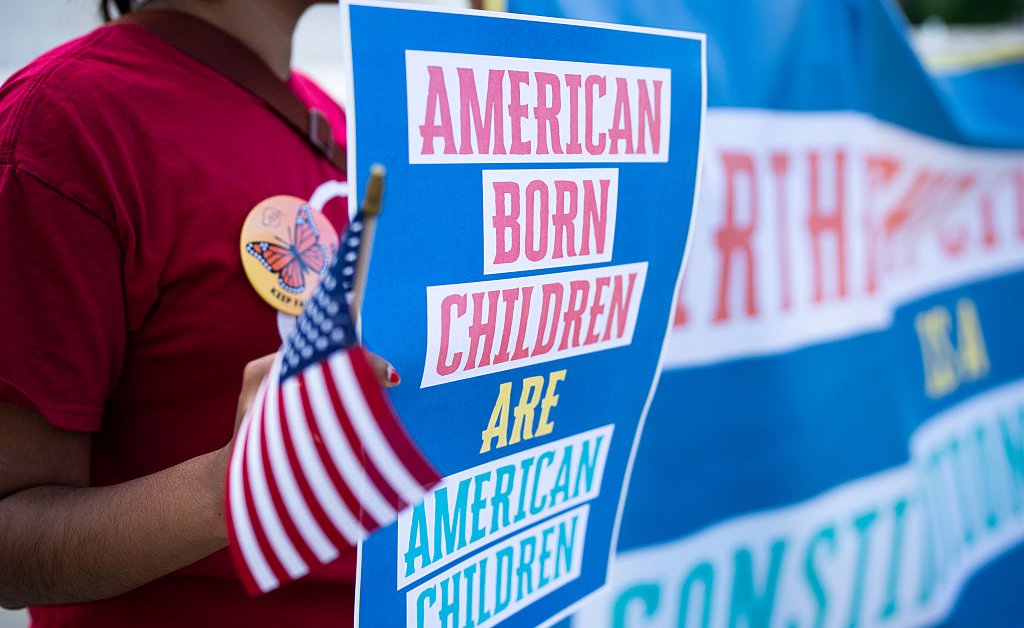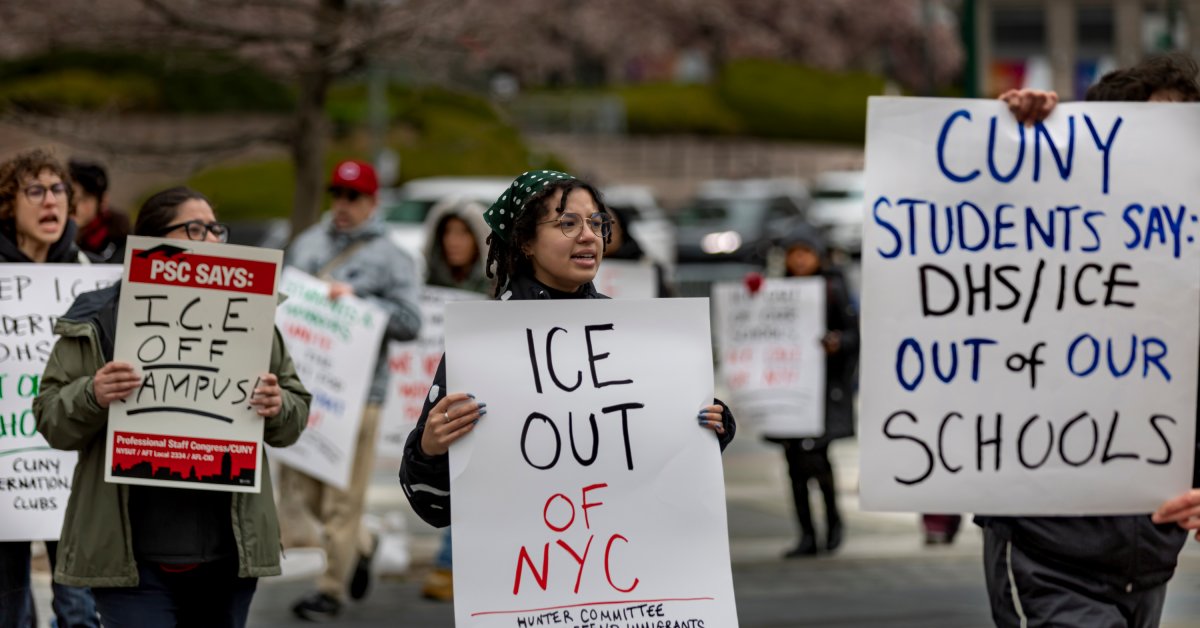On Jan. 20, 2025, President Donald Trump’s first day back in the White House, he issued Executive Order 14160 “Protecting the Meaning and Value of American Citizenship.” The directive attempted to nullify birthright citizenship, as enshrined by the Fourteenth Amendment for over 150 years, and restore an older understanding of U.S. citizenship not seen since before the Civil War.
The framers of the Amendment worried about such an effort. They consciously chose to go through the rigors of the amendment process—instead of just passing a law—precisely to prevent future Congresses from repealing principles like birthright citizenship and to avoid future Supreme Courts from improperly interpreting them.
They wanted to permanently ensure that American law would be more inclusive by extending U.S. citizenship—and the federal protections that came with it—to African Americans. The goal was to protect Black Americans against state discrimination after the abolition of slavery. Section One of the Amendment accordingly stated “All persons born or naturalized in the United States, and subject to the jurisdiction thereof, are citizens of the United States and of the State wherein they reside.”
Trump’s order aims to eliminate this guarantee of citizenship for people born in the U.S. whose mothers were “unlawfully present” or when the mother’s presence in the U.S. was “lawful but temporary.” While multiple legal challenges wind their way through the federal judiciary, the Supreme Court ruled on June 27 that a nationwide injunction halting implementation of the Executive Order was inappropriate. Then, last week, a federal judge temporarily blocked Trump’s order and allowed a class-action suit on behalf of children and parents impacted by Trump’s order to proceed.
The history, however, is unambiguous: birthright citizenship was a necessary solution to the most fundamental question in U.S. history—who is included in the political community. It aimed to do away with longstanding limitations on many Americans’ ability to move about, to live where they wanted, and to be free.
Read More: What to Know About Trump’s Order on Birthright Citizenship and the Legal Battle Around It
Before the passage of the Reconstruction Amendments, African Americans suffered much discrimination due to the lack of clarity of their legal citizenship status. The Naturalization Act of 1790 had defined eligibility for U.S. citizenship as limited to “free white persons.” Thus, European migrants easily and quickly became U.S. citizens and gained access to the attendant rights, privileges, and protections that came with it. By contrast, before the Civil War, enslaved Black Americans were regarded by law as property and without rights. This legal situation left an open question—did free African Americans have citizenship?
During the antebellum period, slave and free states alike were obsessed with policing the mobility and settlement of free Black Americans. After the Revolutionary War, states passed many laws to minimize the size of any free Black populations in their jurisdictions. Free Blacks faced a patchwork of restrictionist laws dictating which states and towns they could legally go to and live in.
Slave states went even further. They passed laws banning free Black people from even entering their borders, and exile laws requiring formerly enslaved persons to leave the state by a deadline or risk being re-enslaved. Between 1793 and 1820, Virginia, Maryland, Kentucky, South Carolina, and Georgia all passed laws banning Black migration into their states—even for people born in the U.S. Especially in the eight coastal slave states, legislators claimed such laws were necessary to protect their states from the “threat” of enslaved insurrection. They argued that free Black Americans, including sailors working on foreign and domestic ships, would intermix with enslaved people and increase the odds of such revolts.
Slave states weren’t alone in taking such actions. During this time, free states in the upper Midwest that bordered slave states passed laws creating legal disabilities and burdensome bureaucratic hurdles for free Black people who wanted to stay within their borders. These laws didn’t apply to white Americans or even white immigrants.
In many towns, new arrivals would have to register at the county clerk’s office and bring proof of how they became free. Other towns required letters from white witnesses attesting to a person’s good moral character in order to stay or required exorbitantly high fees for free Blacks wanting to live there. States claimed that they were defending themselves against an influx of indigent people who would drain their public coffers and disrupt the public peace. In reality, the laws were more about upholding slavery, preventing Black labor competition⎯and in many cases, simply racism.
Although there is little evidence that the laws restricting the mobility of African Americans and their ability to live where they chose were widely enforced, the laws enabled racial profiling and harassment.
To be sure, some European migrants also faced discrimination in housing and employment. Yet, white migrants were not required by law to carry passes legalizing their interstate travel or settlement. In a time before digital technology, African Americans’ identities had to be carefully preserved and portable. An African American’s freedom and presence in parts of the U.S. was as fragile as the pieces of paper that they were legally required to carry and which could be lost, damaged, stolen—or disbelieved by whites.
Free African Americans also worried about being able to stay in the U.S. and not be involuntarily removed to countries in Africa, the Caribbean, and Central America. Such fears were not unmerited. The American Colonization Society (ACS), founded in 1819, reached its zenith of support by the 1850s. Working with the federal and state governments, the group spearheaded efforts to remove free African Americans from the U.S. The ACS was motivated by the discriminatory belief that free African Americans could not be politically incorporated into the nation. What worried Black Americans was whether these colonization programs would be voluntary.
Read More: Birthright Citizenship Has Been Challenged Before
After the Civil War ended, the framers of the three Reconstruction amendments, especially the 14th Amendment, were conscious of these earlier laws as they worked to make the Constitution more inclusive. They sought to remove all doubt that free Black Americans—including those who had been enslaved—had full citizenship rights, and would not face such laws giving them subordinate status. African Americans advocated for such protections to ensure that they would never involuntarily have to leave the only country they had known.

The framers of the 14th Amendment chose plain language, and only made three exceptions to the ironclad guarantee of birthright citizenship: children born to foreign diplomats in the U.S., children born in U.S. territory occupied by enemy soldiers, and Native Americans. The exclusion of Indigenous people was out of deference to their citizenship in their own Native nations.
The protections afforded by the 14th Amendment wiped away African Americans’ fears of colonization programs, as well as rendering state laws restricting interstate mobility and settlement unconstitutional.
In 1898, in the landmark case of U.S. v Wong Kim Ark, the Supreme Court reaffirmed the birthright citizenship guarantee, clarifying that even if one’s parents were legally ineligible for U.S. citizenship, a child born on U.S. soil was a citizen.
The overriding goal of the framers of the birthright citizenship clause (and the Reconstruction Amendments generally) was to include African Americans who had been left out of the U.S. polity⎯to form a more perfect union. Although the U.S. certainly still has gradations of belonging, the Fourteenth Amendment’s birthright citizenship clause’s broad inclusivity is well-established and indisputable, and it should be a point of national pride, which represents Americans’ commitment to a multi-racial democracy. That requires strongly rejecting any attempt reinstate the exclusion and discrimination which spurred its creation.
Anna O. Law is the Herbert Kurz chair in constitutional rights at CUNY Brooklyn College. Her forthcoming book The Origins of American Citizenship and Migration—African Americans, Native Americans, and Immigrants will be out from Oxford University Press in the spring of 2026.
Made by History takes readers beyond the headlines with articles written and edited by professional historians. Learn more about Made by History at TIME here. Opinions expressed do not necessarily reflect the views of TIME editors.








